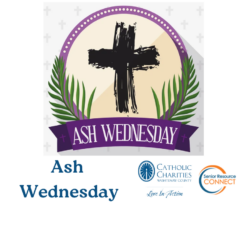Catholic Social Services of Washtenaw County is now Catholic Charities Washtenaw County!
We are excited to announce that Catholic Social Services of Washtenaw County (CSSW) is changing our name to better align with similar organizations dedicated to serving their vibrant communities. Most Catholic Social Service agencies have changed their names to Catholic Charities and are members of a nationwide Catholic Charities network of 160+ agencies. This decision comes from a deep appreciation for the shared mission we have with these groups and a desire to strengthen our ties and enhance collaboration.
Why are we changing our name?
Our new name reflects not just our mission but also our commitment to creating a sense of belonging and shared purpose. By aligning ourselves with like-minded organizations, we aim to foster collaboration that benefits everyone we serve. As part of the national Catholic Charities organization, we look forward to bringing the organization into better alignment with our peers across the Diocese, State, and nation, many of which bear the “Catholic Charities” name.
Celebrating Our Community
The mission of Catholic Charities Washtenaw County is to share the love and presence of Christ in our community through acts of compassion and mercy in a manner that respects the inherent dignity of every person. At the heart of our agency is a profound love for the community we serve. Your resilience, creativity, and spirit inspire us every day. This name change is not just about rebranding; it’s about focusing on charity, on the love that informs all that we do.
What to Expect
With this change, you can expect the same dedication and passion from our team. We remain committed to providing the high-quality services and support you’ve come to know and trust. Please note that these changes take time; over the coming months, you will notice our logo and name changing on all our communications, including information about our services, our website, and all print materials. The name may be new, but our core values of solidarity, empowerment, and sustainability remain the same.






